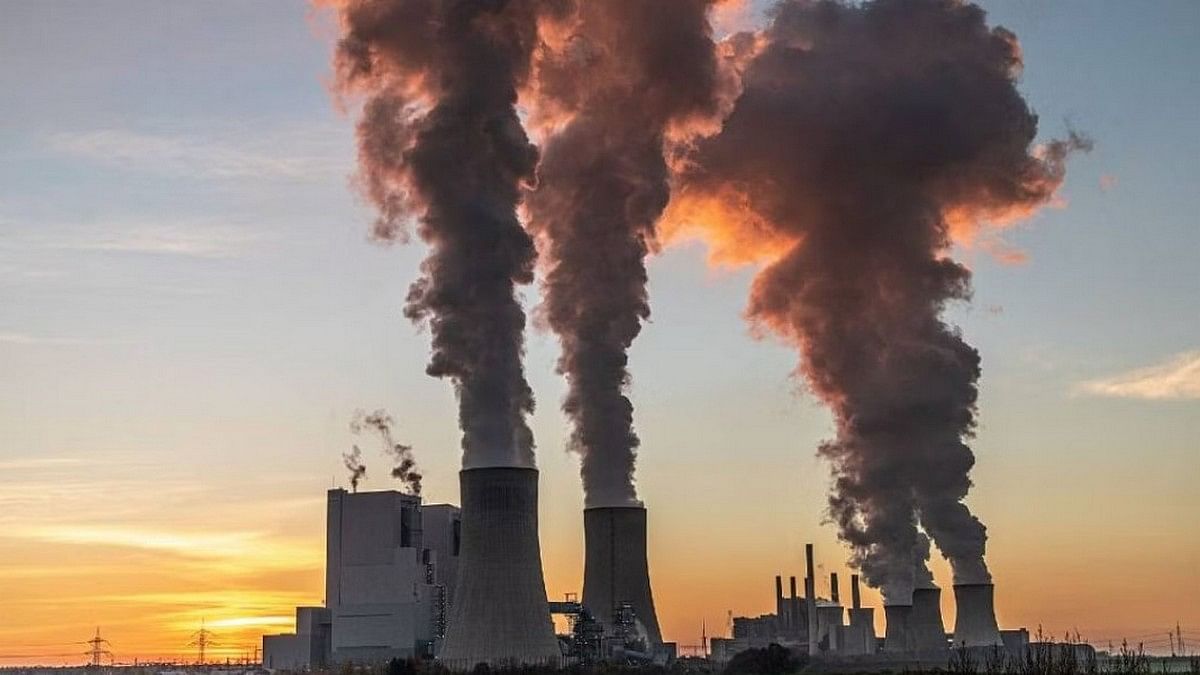New Delhi: The world economy may lose 19 percent of its average income by 2050, even if carbon emissions are cut down immediately, according to a new study published in the journal Nature this week. At approximately 22 percent, African and South Asian countries, including India, are predicted to be most strongly affected in terms of loss of median income.
The econometric analysis, conducted by scientists at Germany-based Potsdam Institute for Climate Impact Research (PIK), looked at the impact of climate change on the global economy — both with and without climate action. In case no action is taken to curb global warming, the world’s economic loss is expected to be over 60 percent by 2100.
A decline of 19 percent in global average income will translate to roughly $38 trillion in damages every year, which is six times more than the money needed for climate change mitigation to restrict global warming to 2°C. Researchers used empirical data over the past 40 years from 1600 regions to arrive at these figures.
The study is a comprehensive addition to the current discourse on the damage and impact of climate change, with the World Meteorological Organisation estimating that the world economy lost $1.9 trillion from 2009 to 2019. While most studies look at just the loss of productivity due to rising temperatures, the researchers at PIK used a more expansive approach towards understanding the economic costs by adding other climate variables. These included annual change in temperature and precipitation, total number of wet days, and total daily rainfall, among others.
Apart from forecasting the global average losses, the study also made region-wise predictions looking at changes in regional climate, heat, and rainfall.
Also Read: Portable MRI, water from air—Indian deep tech startups thriving with incubators, govt funding
Economic math on climate change
Economies across the world are “committed” to an average income loss of 19 percent by 2050 due to past emissions, corresponding to a “17 percent reduction in global GDP,” said Maximilian Kotz, PIK scientist and first author of the study, in a press release.
Average global income loss accounts for not just the Gross Domestic Product (GDP) of the world, but also the per capita income reduction in every country. This is a macroeconomic figure, calculated by weighing the loss in income against the total population. Essentially, it is the per capita income that will reduce by 19 per cent by mid-century, despite whatever action is taken on global emissions.
In North America and Europe, the median income loss is expected to be 11 percent.
“Our analysis shows that climate change will cause massive economic damages within the next 25 years in almost all countries around the world, also in highly-developed ones such as Europe and the US,” said Leonie Wenz, PIK scientist and author of the study.
The study calculates future projections by using historical climate data from the past 40 years, as well as data of sub-national or regional economic output. One of the main policy implications of this analysis was to contrast the economic loss from climate change with the economic cost of taking adaptation and mitigation measures to curb the threat. The researchers, however, also warned that their calculations might be limited, since they could not take into account all climate change variables, such as impact of heatwaves, sea level rise, tropical cyclones, and climate tipping points.
“We have to cut down our emissions drastically and immediately — if not, economic losses will become even bigger in the second half of the century, amounting to up to 60 per cent on global average by 2100,” said Wenz. “This clearly shows that protecting our climate is much cheaper than not doing so, and that is without even considering non-economic impacts such as loss of life or biodiversity.”
(Edited by Mannat Chugh)
Also Read: A group of climate warriors has an action plan to save Delhi. It puts the onus on citizens

